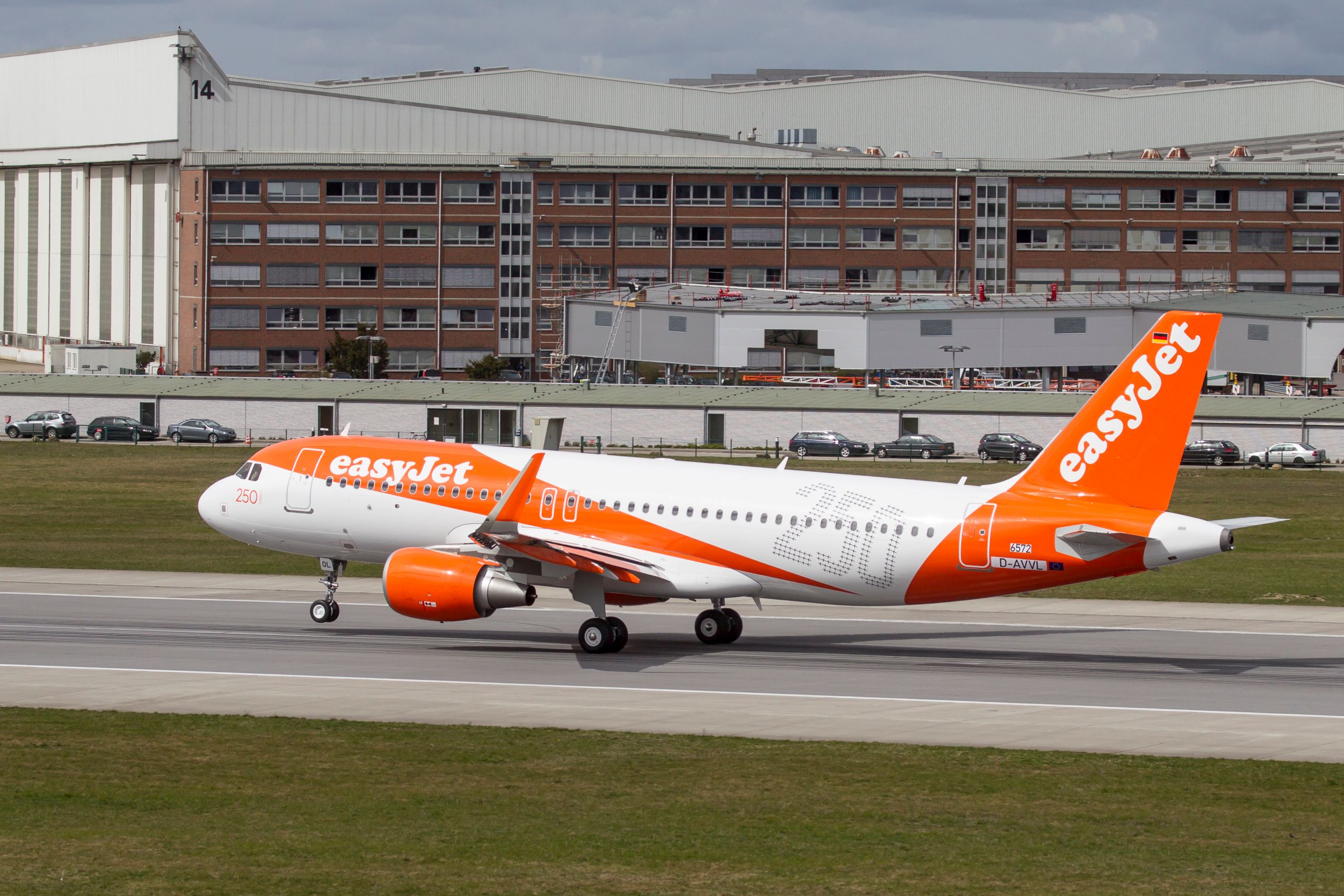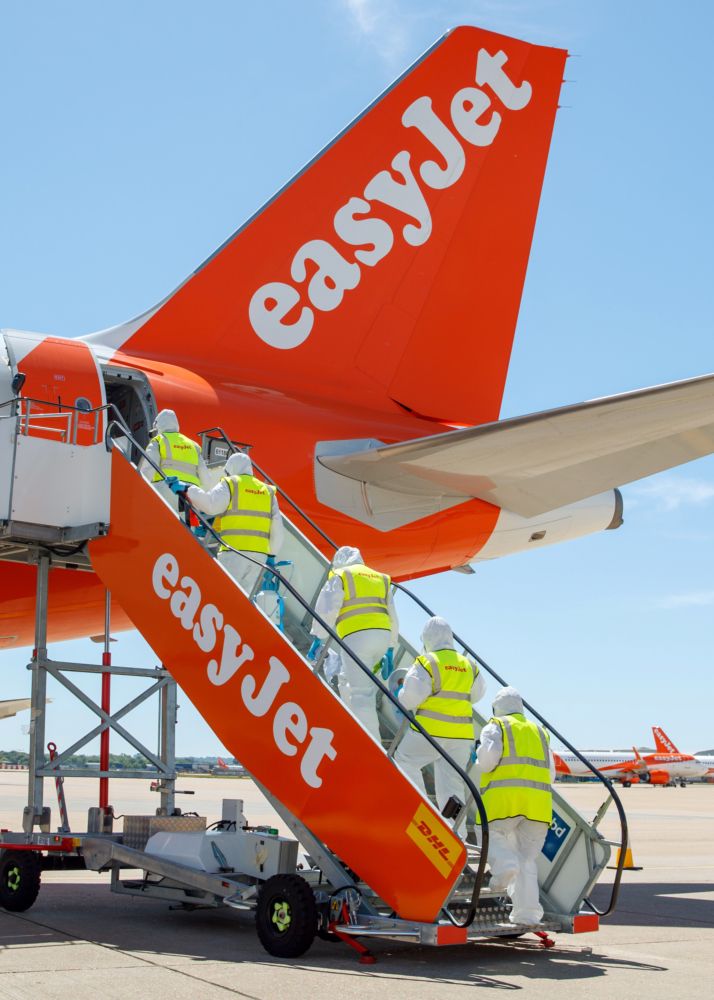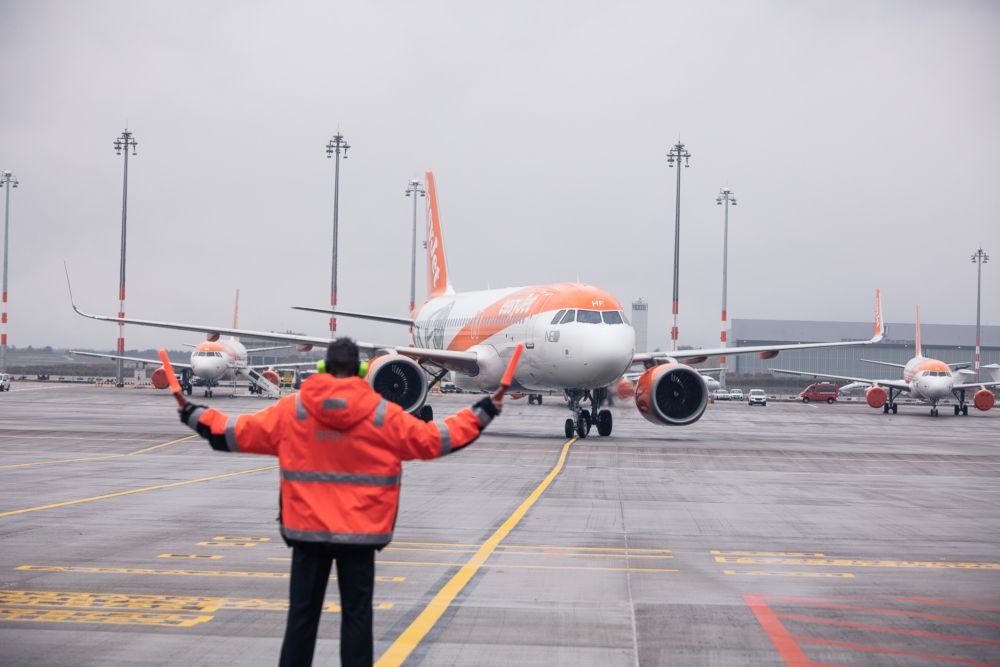British low-cost airline easyJet has made a standout effort to raise capital early on in the pandemic, securing £5.5 billion ($7.6 billion) of additional liquidity. Some of that liquidity was raised through sale and leaseback transactions, which has seen fleet ownership drop from 70% to just over 50%. CEO Johan Lundgren says he is not worried about this, and is prepared to undertake more such transactions if the need arises.
easyJet’s incredible liquidity raise
For airlines to survive COVID, they needed to have a good float of cash in the bank. For easyJet, a good float consisted of an astounding raise of £5.5 billion ($7.6 billion) of liquidity. Speaking to Simple Flying today, Johan Lungren, CEO of easyJet, noted that the decision to go for such a large liquidity raise was made in the early part of the pandemic. He said,
“We raised over five and a half billion pounds of liquidity. Very early on in the pandemic, one of the principles we had was to say, look, we don't know how long this is going to last, so you got to take a decision based on that. In that situation, you need to make sure you have enough liquidity. So that's why we were very quick and decisive to raise that amount of funds.”
easyJet has leveraged a wide variety of sources to secure the liquidity it needed to get through the pandemic. Its strong position as a profitable business prior to the crisis enabled the airline to access different funding sources and to negotiate for the best rates on borrowed capital. But it didn’t only borrow money to enhance its bank balance, as Lundgren explained,
“We had also to manage the cash burn, to make sure that there was as little cash leaving the company as possible. That was done in conjunction with the largest cost cutting program we have ever done. We have reduced £500 million in costs this year, and we expect almost half of that will be sustainable going forward. We will keep working on that. The cost bae at easyJet has been transformed coming out of this.”
Stay informed: Sign up for our daily and weekly aviation news digests.
Fleet ownership has dropped by 27%
easyJet has always mixed up its fleet between owned and leased aircraft, although the weighting has historically been more on the owned side. But as part of the liquidity raising efforts, Lungren and his team had to look at the collateral they had and see where capital could be released. He noted,
“One source of liquidity has come through the sale and leaseback that we've been doing. We had [pre-COVID] ownership of about 70% of the fleet previously. Our ownership sits at about 51%, but 41% of the fleet we have is still unencumbered. There's no financial liability on those.”
The fleet ownership may have dropped by just over 27%, but that’s not seen as a bad thing in Lungren’s eyes. As he points out, a large portion of the owned fleet is unencumbered, meaning there is no outstanding money or credit secured on those aircraft. That gives easyJet a good degree of flexibility when it comes to future transactions.
While the summer is looking more positive by the day, with travel restrictions slowly relaxing, easyJet is keen to ensure that it has the ability to raise more capital should it need to. Lundgren said,
“We're going to continue to review all the options that we have available to make sure that we will always have the right amount of liquidity that is needed. And because we have a range of choices of these sources, we can create the tension also to make sure we get the best terms out of that.”
Lessors have been invaluable to airlines during these difficult times, and with easyJet’s excellent reputation for maintenance and care of its jets, Lundgren says they have been offering his airline very good rates. Hopefully, what’s been raised to date will be enough to see the airline through. But if things change again, there’s still plenty of lateral movement for easyJet to keep balancing its books.



